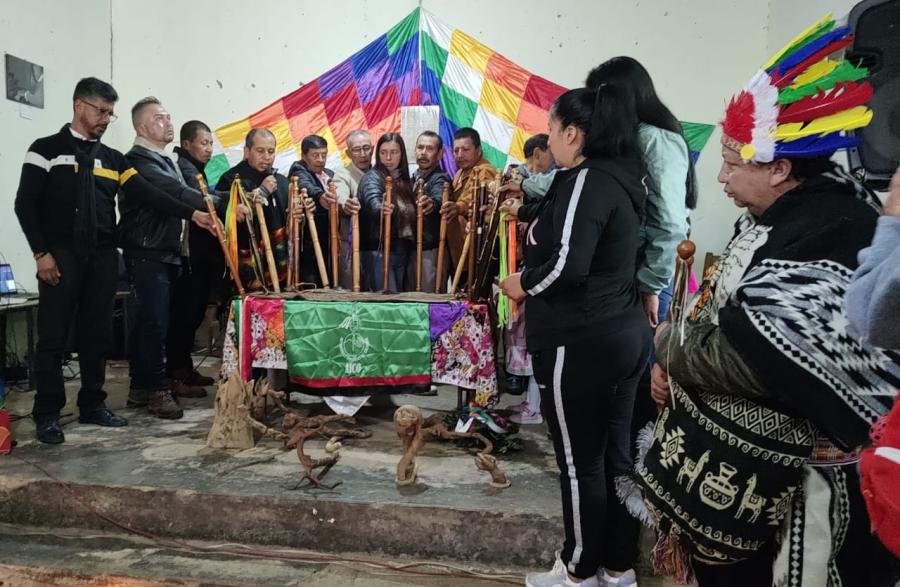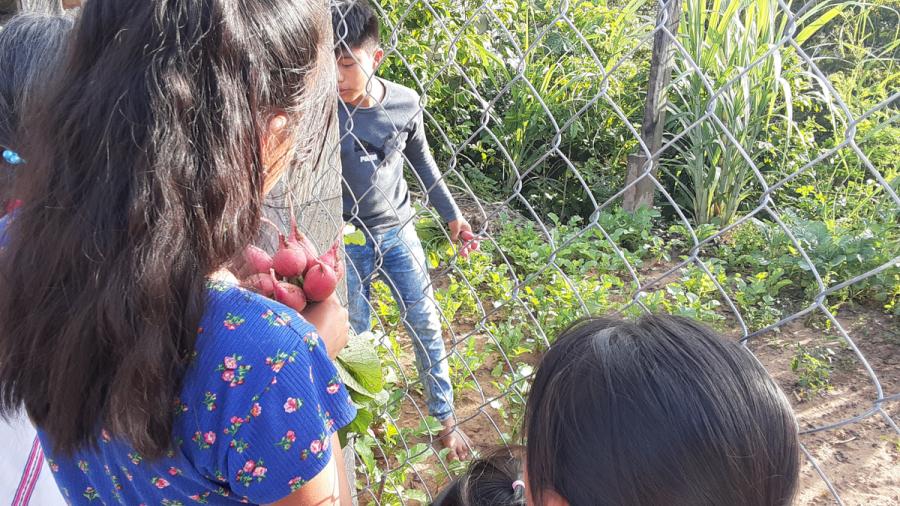La FOMMA [Fortaleza de la Mujer Maya or Strength of the Mayan Woman] is a Mayan women's playwright cooperative in Chiapas, Mexico, formed in 1994. The grassroots organization performs plays dealing with women's rights, domestic and cultural issues, and reproductive health. Proceeds support La FOMMA’s bilingual literacy, women’s rights, and professional development activities. The all-women theatre group will tour New England from
March 27 to April 10, 2006.
Cultural Survival interns Elisa Barety and Darcie Mulholland recently interviewed
Isabel Juárez Espinosa, Cultural Survial Program Council member and co-founder of La FOMMA
Can you give a brief introduction to yourself and La FOMMA?
I'm originally from Aguacatenango, a community in Chiapas. It has been a long time since I migrated to the city of San Cristóbal de las Casas, which is about an hour away from my community. I settled in San Cristóbal because of both my studies and work.
After moving to the city, I lived with the family of an indigenous/American couple. They introduced me to an indigenous group working to preserve the culture and oral traditions of the elders by collecting and writing stories from the communities. In 1987 this group wanted to begin performing plays with puppets. A volunteer showed us how to create the puppets and bring them to life. In 1988 we decided to stage a more formal play, with actors and actresses—it was the start of La FOMMA's staging plays based on the oral histories that we had collected. This is when I began acting.
What activities are sponsored by La FOMMA?
With funds raised by our organization, we have helped more than 300 women improve their lives. Often the women want to learn how to be productive so that they can become self-sufficient at home. In such cases, we offer them baking or tailoring courses.
We also offer courses in sewing, computer skills, and education for those interested in learning how to write in their native language. In addition to Spanish, we oversee the teaching of two languages at our center, Tzeltal and Tzotzil. As a result, many university students come to study their native language. Others at the center have scholarships through other institutions in partnership with La FOMMA, enabling them to study in a variety of areas.
What is the impact of La FOMMA's plays?
Our plays allow both men and women to reflect on their lives and communities. Some of our plays help people initiate discussion on migration. If a family sells their community lands and moves to the city, leaving everything behind, they may find themselves unable to pay rent, or find a decent job. They often cannot find a dignified home, but instead end up living in small apartments where women and children, who used to have freedom to go out in the local communities, feel restricted to their living space.
Other plays deal with alcoholism and address questions surrounding the significance of alcohol, its consumption, and issues around quitting. These are some of the different messages conveyed through our plays.
I think La FOMMA’s plays all serve the same purpose: to promote discussion and reflection.


